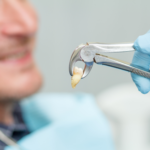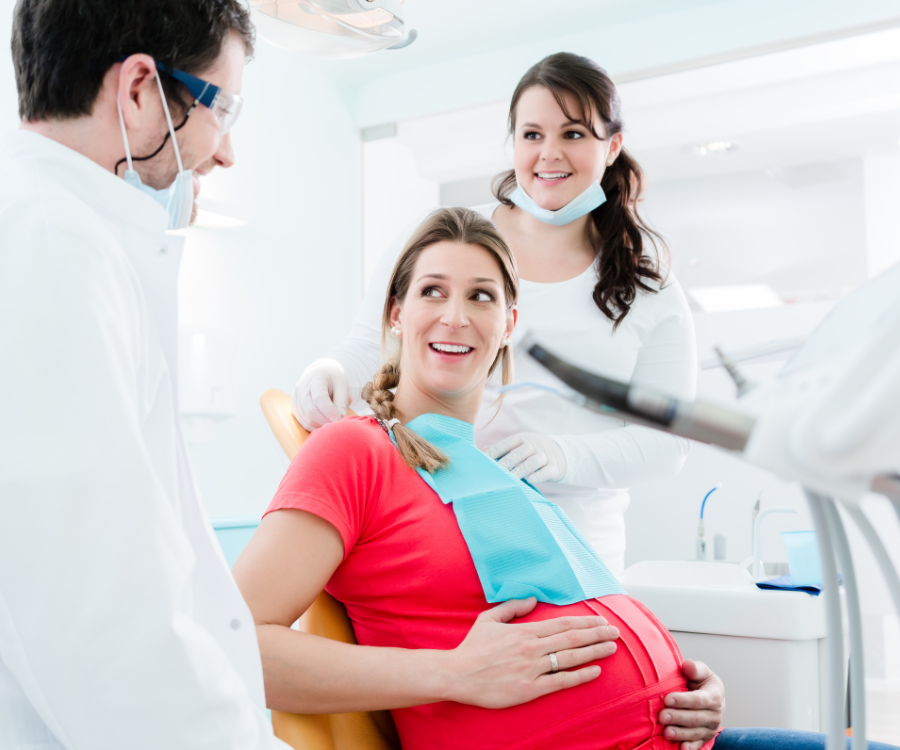Pregnancy and Your Smile: What to Expect with Your Gums and Teeth
Pregnancy is an incredible journey filled with excitement, anticipation, and, let’s be honest, a whole lot of body changes! While most expectant mothers focus on prenatal vitamins and nursery decor, one area that often gets overlooked is oral health. But did you know your gums and teeth are significantly affected by carrying a baby?
The hormonal rollercoaster of pregnancy creates a unique environment in your mouth, making you more susceptible to certain dental issues. Ignoring these changes isn’t an option, as poor oral health can potentially have wider health implications for both you and your baby.
Here is a human-style, keyword-optimized guide to understanding how pregnancy affects your gums and teeth and, most importantly, how to keep your smile healthy and bright throughout your nine months and beyond.
The Big Culprit: Pregnancy Hormones
The surge of progesterone and estrogen is essential for a healthy pregnancy, but they also have a dramatic effect on your mouth. These hormones increase blood flow to your gums, making them more sensitive and reactive to the bacteria found in plaque.
This heightened sensitivity is the primary driver behind the most common dental problem in expectant mothers: Pregnancy Gingivitis.
1. Pregnancy Gingivitis: Swollen, Bleeding Gums
If your gums are looking redder than usual, appear puffy, or bleed easily when you brush or floss, you’re likely experiencing pregnancy gingivitis. This mild form of gum disease affects a large percentage of pregnant women, often starting in the second trimester.
Key Symptoms:
- Red, tender, or swollen gums.
- Gums that bleed easily during brushing and flossing.
- Bad breath (halitosis).
The good news is that with dedicated oral care, this condition is usually treatable and reversible. In most cases, it clears up shortly after childbirth.
2. The Danger Zone: Progression to Periodontitis
If gingivitis is left untreated, it can advance to a more serious infection called periodontitis (advanced gum disease). This involves the infection and inflammation reaching the bone and tissue that support your teeth.
Why is this a concern? Advanced periodontal disease has been linked in some studies to adverse pregnancy outcomes, including an increased risk of preterm delivery and low birth weight babies. While more research is needed to fully understand the connection, prioritizing gum health is a proactive step you can take for a healthy pregnancy.
3. Tooth Erosion from Morning Sickness
For many, the first trimester brings the unpleasant reality of morning sickness and vomiting. Stomach acid is highly corrosive to tooth enamel. Frequent exposure to this acid can weaken the surface of your teeth, putting you at higher risk for tooth decay and dental erosion.
Simple, Essential Oral Care Tips for Expectant Moms
Maintaining excellent oral hygiene is your best defense against pregnancy-related dental issues. Here are the top tips to keep your mouth healthy:
- Brush Twice Daily: Use a soft-bristled toothbrush and a fluoride toothpaste. Be gentle, especially near the gum line where plaque accumulates, but be thorough.
- Floss Once Daily: This is non-negotiable! Flossing removes food particles and plaque from between your teeth, which is crucial for preventing gingivitis.
- Handle Morning Sickness Carefully:
- Do NOT brush immediately after vomiting. Your tooth enamel is softened by the acid, and brushing can cause damage.
- Rinse immediately with plain water, a fluoride mouthwash, or a mixture of one teaspoon of baking soda in one cup of water to neutralize the acid.
- Wait at least 30 minutes before brushing.
- Snack Smart: Your diet is vital. Limit sugary snacks and drinks, which feed the bacteria that cause tooth decay. If you do snack, choose teeth-friendly options like fresh fruit, vegetables, or cheese.
- Keep Your Dental Appointments: Routine dental cleanings and checkups are safe and highly recommended during pregnancy. Tell your dental professional that you are pregnant and your due date.
- Best Time for Routine Work: The second trimester (months 4-6) is generally considered the most comfortable and safest time for necessary dental work like fillings. Non-urgent procedures are often postponed until after delivery.
Don’t Skip the Dentist!
One of the most important takeaways is that dental care is safe during pregnancy. Do not avoid your regular checkups or necessary treatments like fillings.
If you notice any of the following, book an appointment right away:
- Persistent gum bleeding, swelling, or tenderness.
- A localized lump or growth on your gums (sometimes called a “pregnancy tumor” or epulis gravidarum—they are usually harmless but need to be checked).
- Tooth pain or increased sensitivity.
Prioritizing your oral health is a key component of a healthy pregnancy and a wonderful step toward being a healthy parent. By understanding the link between your hormones, your hygiene, and your smile, you can ensure you’re glowing not just with that pregnancy radiance, but with a confident, healthy smile too!








